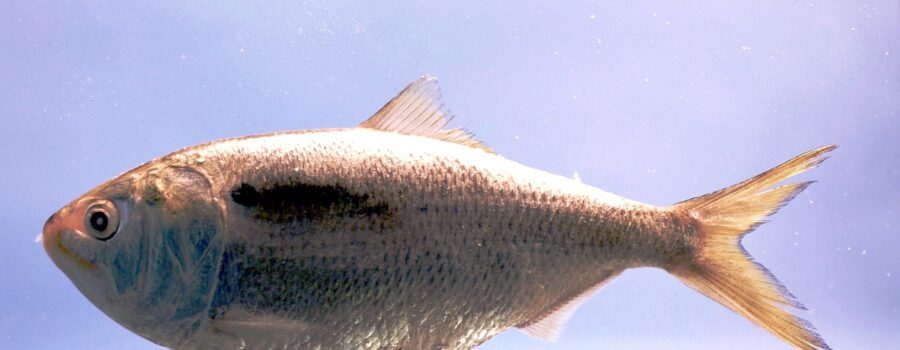Press Release: CLA Files Petition for Rulemaking to Save Menhaden and Bay Ecosystem
Menhaden are the most important fish in the Chesapeake Bay. This small, nutrient-packed forage fish is a keystone species -critical to the Chesapeake Bay ecosystem- because they are a primary food source for many sport fish, including striped bass (rockfish), bluefish, and weakfish, osprey and eagles, and marine mammals, like dolphins and whales, throughout the Bay and the mid-Atlantic region. These fish are also vital because they act as efficient filter feeders, filtering several gallons of water each minute. The Bay is one of the most important nurseries for menhaden, helping to sustain the population along the Atlantic coast.
The best available science shows that menhaden populations in the Bay are in decline, and for years the public has called for more responsible limits on the amount of menhaden that can be fished to protect the Bay’s delicate ecosystem. As overfishing of menhaden in the Bay continues, there is a strong and direct correlation with declines in the population of sportfish, osprey, and marine mammals, along with forced shifts in diet away from their primary food source of menhaden.
In May 2023, Chesapeake Legal Alliance responded by filing a challenge, on behalf of the Southern Maryland Recreational Fishing Organization, against the Virginia Marine Resources Commission (VMRC), the agency charged with regulating Virginia’s menhaden fishery. We challenged the VMRC’s failure to develop and implement regulations that consider and incorporate statutorily-required conservation and management measures, including prevention of overfishing; consideration of the best available scientific, economic, and biological data; equitable allocation to users; and rulemaking that is not for the sole purpose of economic allocation.
Now, and separate from the litigation to better regulate the menhaden fishery, we coordinated with fishing and conservation groups across the Bay watershed to file a petition for rulemaking to the VMRC. The petition lays out the blueprint for ‘how’ and ‘why’ the agency should be acting.
Read the full press release below:





